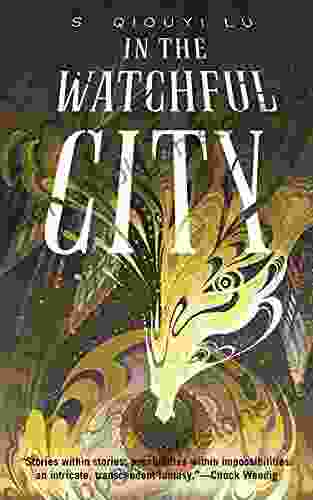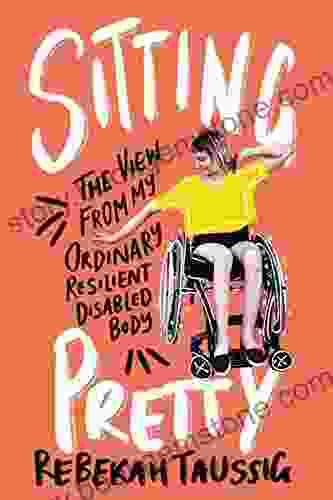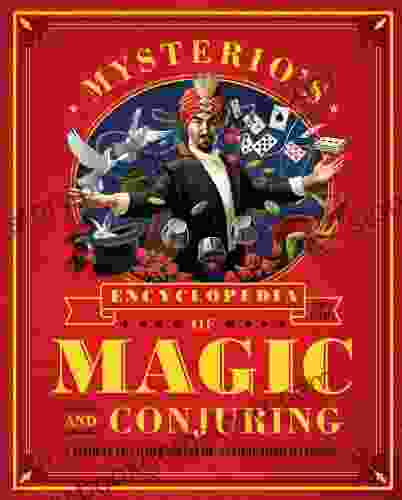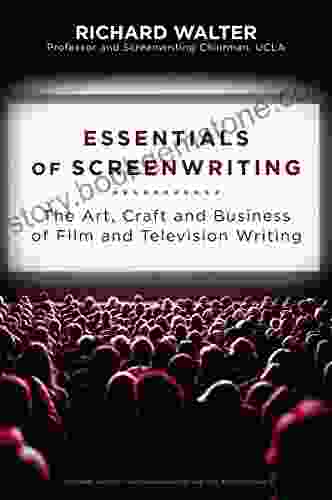The Art, Craft, and Business of Film and Television Writing

Film and television writing is a unique and challenging craft that combines elements of art, craft, and business. In this article, we will explore the different aspects of film and television writing, from the creative process to the business of getting your work produced.
4.5 out of 5
| Language | : | English |
| File size | : | 2008 KB |
| Text-to-Speech | : | Enabled |
| Screen Reader | : | Supported |
| Enhanced typesetting | : | Enabled |
| Word Wise | : | Enabled |
| Print length | : | 400 pages |
The Art of Film and Television Writing
Film and television writing is an art form that requires creativity, imagination, and a deep understanding of human nature. The best film and television writers are able to create characters that are both believable and relatable, and stories that are both entertaining and thought-provoking.
There are many different elements that go into creating a successful film or television script. These include:
- Character development: Creating characters that are believable, relatable, and complex is essential to writing a successful film or television script. Characters should have clear motivations and goals, and they should be able to change and grow over the course of the story.
- Plot structure: The plot of a film or television script should be well-structured and engaging. It should have a clear beginning, middle, and end, and it should keep the audience guessing what will happen next.
- Dialogue: Dialogue is an essential part of film and television writing. It should be natural, believable, and revealing. Dialogue should also be used to advance the story and develop the characters.
- Theme: Every film or television script has a theme. This is the central message or idea that the writer wants to convey to the audience. The theme should be woven into the story in a subtle way, and it should not be preachy or didactic.
- Subtext: Subtext is what is left unsaid in a film or television script. It is the meaning that is implied by the words and actions of the characters. Subtext can be used to create tension, suspense, and irony.
- Genre: The genre of a film or television script refers to its overall tone and style. There are many different genres of film and television, including comedy, drama, action, horror, and science fiction. The genre of a script will determine its target audience and the way it is marketed.
- Format: The format of a film or television script is important for ensuring that it is readable and easy to understand. There are specific rules for formatting scripts, and these rules must be followed carefully.
The Craft of Film and Television Writing
In addition to the artistic elements of film and television writing, there is also a craft to it. This includes understanding the different stages of the writing process, as well as the business of getting your work produced.
The writing process for a film or television script typically involves the following steps:
- Outlining: The first step in writing a film or television script is to create an outline. This is a brief overview of the story, including the main characters, the plot, and the ending. The outline will help you to stay organized and on track as you write the script.
- First draft: Once you have an outline, you can begin writing the first draft of the script. This is where you will flesh out the characters, develop the plot, and write the dialogue. The first draft is not always perfect, but it is a good starting point.
- Rewriting: After you have finished the first draft, you will need to rewrite it. This is where you will refine the story, fix any plot holes, and make sure that the dialogue is sharp and engaging. You may need to rewrite the script several times before it is ready.
- Polishing: Once you are satisfied with the rewrite, you will need to polish the script. This is where you will check for typos, grammar errors, and formatting issues. You may also want to get feedback from other writers, producers, or directors to help you improve the script.
The Business of Film and Television Writing
Getting your film or television script produced is a business. This involves finding an agent, pitching your script, and working with producers and directors to bring your vision to life.
Here are some tips for getting your film or television script produced:
- Get an agent: An agent can help you to get your script in front of producers and directors. Agents typically charge a commission on any deals that they make for you.
- Pitch your script: When you have an agent, they will help you to pitch your script to producers and directors. A pitch is a short presentation that gives a brief overview of your script and why you think it would be a great film or television show.
- Work with producers and directors: Once you have found a producer or director who is interested in your script, you will need to work with them to develop the project. This may involve rewriting the script, developing the characters, and securing financing.
- Get your film or television show produced: Once you have developed the project with a producer or director, you will need to get it produced. This may involve finding financing, hiring a cast and crew, and shooting the film or television show.
Film and television writing is a challenging but rewarding career. It is a field that requires creativity, imagination, and a deep understanding of human nature. If you are passionate about storytelling and have a strong work ethic, then film and television writing may be the right career for you.
4.5 out of 5
| Language | : | English |
| File size | : | 2008 KB |
| Text-to-Speech | : | Enabled |
| Screen Reader | : | Supported |
| Enhanced typesetting | : | Enabled |
| Word Wise | : | Enabled |
| Print length | : | 400 pages |
Do you want to contribute by writing guest posts on this blog?
Please contact us and send us a resume of previous articles that you have written.
 Best Book
Best Book Page Flip
Page Flip Bookshelf
Bookshelf Literary loom
Literary loom Chapter
Chapter Bookish
Bookish PageTurner
PageTurner Bibliophile
Bibliophile Story
Story Inkwell
Inkwell Bookworm
Bookworm Labyrinth
Labyrinth Plot Twist
Plot Twist Prose
Prose Paperback
Paperback Storyteller
Storyteller Sanctuary
Sanctuary Fiction
Fiction Reading
Reading Chronicle
Chronicle Read
Read Jason Anspach
Jason Anspach Firoozeh Dumas
Firoozeh Dumas Michael N Marcus
Michael N Marcus Henry Adams
Henry Adams Tipu Khan
Tipu Khan Sofie Roach
Sofie Roach Samantha Ford
Samantha Ford Frank Vlastnik
Frank Vlastnik Jordan Matter
Jordan Matter Lucy Vine
Lucy Vine Patty Krawec
Patty Krawec Steven Derosa
Steven Derosa Michael Eric Dyson
Michael Eric Dyson Os Cresson
Os Cresson Gladys Malvern
Gladys Malvern Ignatia Broker
Ignatia Broker Jeremy Asher Dauber
Jeremy Asher Dauber Susan Mahalick
Susan Mahalick Marcus Sloss
Marcus Sloss Sandy Alvarez
Sandy Alvarez Michelle Holder
Michelle Holder Sandy Allnock
Sandy Allnock Meniere Man
Meniere Man Leigh Forbes
Leigh Forbes Enrico Massetti
Enrico Massetti Peter Barnes
Peter Barnes Mitch Albom
Mitch Albom Joshua Safran
Joshua Safran Paul D Marks
Paul D Marks Stephen Laskevitch
Stephen Laskevitch Richard Phillips
Richard Phillips Jane Dempster Smith
Jane Dempster Smith Georgina Pazcoguin
Georgina Pazcoguin Philip Caputo
Philip Caputo Mike Kraus
Mike Kraus E J Fleming
E J Fleming Barbara Lewis
Barbara Lewis Kelly Wiese
Kelly Wiese Mahealani Uchiyama
Mahealani Uchiyama Erika B
Erika B G Costa
G Costa Susan Britt Gallagher
Susan Britt Gallagher Regina Louise
Regina Louise Sara King
Sara King M R Green
M R Green Drew Karpyshyn
Drew Karpyshyn Jeff Burgess
Jeff Burgess L X Beckett
L X Beckett Ros Per
Ros Per Peter Heller
Peter Heller Sandra Rendgen
Sandra Rendgen Fiona Davis
Fiona Davis Sandro Jung
Sandro Jung Laurie Mcandish King
Laurie Mcandish King Eva Mozes Kor
Eva Mozes Kor Olga Baranova
Olga Baranova Farrah Rochon
Farrah Rochon Henry W Simon
Henry W Simon Lora S Irish
Lora S Irish Franny Moyle
Franny Moyle Wilson Harvey
Wilson Harvey George Allen Durkee
George Allen Durkee Richard Fife
Richard Fife Marion Amberg
Marion Amberg Susan Sontag
Susan Sontag Jerry Stahl
Jerry Stahl Rita Naomi Moran
Rita Naomi Moran John P Murphy
John P Murphy Hashim Akib
Hashim Akib Ta Nehisi Coates
Ta Nehisi Coates Mike Bockoven
Mike Bockoven James David Victor
James David Victor Nice Leng Ete
Nice Leng Ete S M Anderson
S M Anderson Karen Telling
Karen Telling Georgina Shorter
Georgina Shorter Brittney Brooke
Brittney Brooke Jacques Maritain
Jacques Maritain Kara Tatelbaum
Kara Tatelbaum Uri Dan
Uri Dan Glynn Stewart
Glynn Stewart Philip Donlay
Philip Donlay Julia Emma
Julia Emma James Woodford
James Woodford Francine Prose
Francine Prose Dennis Vanderkerken
Dennis Vanderkerken Ernie Jr Johnson
Ernie Jr Johnson Dawn C Crouch
Dawn C Crouch Shoba Narayan
Shoba Narayan Ernst Pawel
Ernst Pawel Brenda Jackson
Brenda Jackson Marie Benedict
Marie Benedict Tom Sancton
Tom Sancton Kathleen E Woodiwiss
Kathleen E Woodiwiss John Cameron Smith
John Cameron Smith Lynda Lopez
Lynda Lopez Eric Foner
Eric Foner John Floyd
John Floyd Jessie Redmon Fauset
Jessie Redmon Fauset Manny Khoshbin
Manny Khoshbin Frank Herbert
Frank Herbert Rudolf Steiner
Rudolf Steiner Jerome Preisler
Jerome Preisler Gavin Strange
Gavin Strange G K Chesterton
G K Chesterton Eric Metaxas
Eric Metaxas Mark Tufo
Mark Tufo Fernand Braudel
Fernand Braudel Will Lutwick
Will Lutwick James Caskey
James Caskey Vanessa R Sasson
Vanessa R Sasson Revised Edition Kindle Edition
Revised Edition Kindle Edition Harriet Mcbryde Johnson
Harriet Mcbryde Johnson Chelsea Handler
Chelsea Handler Tim Leong
Tim Leong Tom Nichols
Tom Nichols Johnnie Gentle
Johnnie Gentle Piers Anthony
Piers Anthony Jennifer 8 Lee
Jennifer 8 Lee Karl Iglesias
Karl Iglesias Ken Hultgren
Ken Hultgren Joe Kane
Joe Kane Explore Towin
Explore Towin Jacob Burckhardt
Jacob Burckhardt Nicole R Fleetwood
Nicole R Fleetwood Mary Mccarthy
Mary Mccarthy Vicki Andree
Vicki Andree Frank Mclynn
Frank Mclynn Frederik Pohl
Frederik Pohl Vaclav Havel
Vaclav Havel Judith Yates
Judith Yates Lee Feigon
Lee Feigon Meiqin Wang
Meiqin Wang Ann Petry
Ann Petry Sharon Swift
Sharon Swift S A Chakraborty
S A Chakraborty Brandon Q Morris
Brandon Q Morris Nancy Sharon Collins
Nancy Sharon Collins Linda Birch
Linda Birch Jo Spain
Jo Spain Jan Moran
Jan Moran Edward Brody
Edward Brody Kid Congo Powers
Kid Congo Powers Erin French
Erin French Keah Brown
Keah Brown Brian Lawrenson
Brian Lawrenson Elaine Lui
Elaine Lui Leslie Frontz
Leslie Frontz Maureen Furniss
Maureen Furniss Lola Dodge
Lola Dodge Simon Winchester
Simon Winchester Keisha Quallo
Keisha Quallo Tom Hoffmann
Tom Hoffmann Russell Means
Russell Means Mark Wayne Mcginnis
Mark Wayne Mcginnis Kent Blansett
Kent Blansett Robert Bailey
Robert Bailey Howard Thurman
Howard Thurman Frank Settle
Frank Settle Zane
Zane Evelio Grillo
Evelio Grillo Pui Che
Pui Che Susan Mallery
Susan Mallery Peter Ford
Peter Ford Mitchell Grey
Mitchell Grey Kenyatta Kelechi
Kenyatta Kelechi Gris Grimly
Gris Grimly John W Morehead
John W Morehead Faith Evans Sills
Faith Evans Sills Mike Jack Stoumbos
Mike Jack Stoumbos Jimmy Santiago Baca
Jimmy Santiago Baca Joe Hammond
Joe Hammond Mark Harris
Mark Harris Stephanie Pui Mun Law
Stephanie Pui Mun Law Ronnie Lipton
Ronnie Lipton Victoria Finlay
Victoria Finlay S K Dunstall
S K Dunstall Boze Hadleigh
Boze Hadleigh Nick Kyme
Nick Kyme Traci Foust
Traci Foust Nicholas Crouch
Nicholas Crouch Zohara Hirji
Zohara Hirji Idtravelling
Idtravelling Sy Montgomery
Sy Montgomery Fergal Keane
Fergal Keane Debra Gwartney
Debra Gwartney Margaret Aycock
Margaret Aycock Johann Wolfgang Von Goethe
Johann Wolfgang Von Goethe Fredric Brown
Fredric Brown Katherine Baber
Katherine Baber Lynn F Forney
Lynn F Forney Francene Hart
Francene Hart Steven Heller
Steven Heller G S Jennsen
G S Jennsen Simran Bansal
Simran Bansal John Marshall
John Marshall Jay Scarfone
Jay Scarfone Neal Gabler
Neal Gabler Sibylla Nash
Sibylla Nash J L Witterick
J L Witterick Michael F Kastre
Michael F Kastre Sheryl Sandberg
Sheryl Sandberg Jennifer Higgie
Jennifer Higgie Yelena Lembersky
Yelena Lembersky Eric Karjaluoto
Eric Karjaluoto Lily King
Lily King Wallace Terry
Wallace Terry Bill Fawcett
Bill Fawcett Henry Kuttner
Henry Kuttner Jerry Yarnell
Jerry Yarnell Leslie J Sherrod
Leslie J Sherrod John Williams
John Williams David Codamo
David Codamo Tiece
Tiece Frank Argote Freyre
Frank Argote Freyre Kelly Hodge
Kelly Hodge Lisa Eldridge
Lisa Eldridge Mark Rice
Mark Rice Kevin Collamore Braun
Kevin Collamore Braun Mayte Garcia
Mayte Garcia Rachael Chastain
Rachael Chastain Florence Scovel Shinn
Florence Scovel Shinn Lee Hammond
Lee Hammond Rebekah Taussig
Rebekah Taussig Sally Mott Freeman
Sally Mott Freeman Rob Smyth
Rob Smyth Lawrence Chui
Lawrence Chui Richard Killeen
Richard Killeen Robert Hardman
Robert Hardman Jessica Mack
Jessica Mack Ruby Boukabou
Ruby Boukabou Petra Kuppers
Petra Kuppers Francisco Martin Rayo
Francisco Martin Rayo Cheryl Probst
Cheryl Probst Ruth E Iskin
Ruth E Iskin Robert Westbrook
Robert Westbrook Yvon Chatelin
Yvon Chatelin Nathaniel Schiffman
Nathaniel Schiffman Gulbahar Haitiwaji
Gulbahar Haitiwaji Frances Dinkelspiel
Frances Dinkelspiel Carolyn Brown
Carolyn Brown Eugene Robinson
Eugene Robinson Jody Eddy
Jody Eddy Neil Clarke
Neil Clarke Zenna Henderson
Zenna Henderson Diane Greenberg
Diane Greenberg Timm Mains
Timm Mains John Hundley
John Hundley Nahal Tajadod
Nahal Tajadod Eriko Ogihara Schuck
Eriko Ogihara Schuck Stephen Jones
Stephen Jones Lynnea Lee
Lynnea Lee Jacob Broschart
Jacob Broschart Francisco Goya
Francisco Goya J M Calverley
J M Calverley Vera Raye
Vera Raye Eungjun Min
Eungjun Min Zaina Brown
Zaina Brown Rachel Eskandari
Rachel Eskandari Sapphire
Sapphire Thad Komorowski
Thad Komorowski Sydney Ladensohn Stern
Sydney Ladensohn Stern Laureen Jordan
Laureen Jordan Jerry Minchey
Jerry Minchey Bruce Sterling
Bruce Sterling Oscar Lovell Triggs
Oscar Lovell Triggs Max Anderson
Max Anderson Jaleen Grove
Jaleen Grove Chanda Prescod Weinstein
Chanda Prescod Weinstein Richard Sale
Richard Sale Yahrah St John
Yahrah St John Q David Bowers
Q David Bowers Saidiya V Hartman
Saidiya V Hartman J Chary
J Chary Funa
Funa John Foster
John Foster David B Levy
David B Levy Tim Pratt
Tim Pratt Sophie Stern
Sophie Stern Esmeralda Santiago
Esmeralda Santiago Randy Welborn
Randy Welborn Lina Bengtsdotter
Lina Bengtsdotter Raiford Guins
Raiford Guins Farah Bidin
Farah Bidin P Planat
P Planat Tu Ilape Vimahi
Tu Ilape Vimahi Jim Krause
Jim Krause Scott Waddle
Scott Waddle Jayne Wark
Jayne Wark Digital Papyrus
Digital Papyrus David Anicetti
David Anicetti Eric Thomson
Eric Thomson Wendy Bellion
Wendy Bellion Eric Shanes
Eric Shanes Jennifer Smith Turner
Jennifer Smith Turner Steven M Barrett
Steven M Barrett Loren Moss
Loren Moss Franklin Horton
Franklin Horton Melanie Cambridge
Melanie Cambridge Valerie Van Ballaer
Valerie Van Ballaer Frederick Forsyth
Frederick Forsyth Fred M Grandinetti
Fred M Grandinetti Kate Spade New York
Kate Spade New York Oliver Sin
Oliver Sin Maria Tallchief
Maria Tallchief Belinda Austin
Belinda Austin John Baxter
John Baxter Scott Rigsby
Scott Rigsby Karen Brooks Hopkins
Karen Brooks Hopkins Matthew Palmer
Matthew Palmer Matt Forster
Matt Forster Seanan Mcguire
Seanan Mcguire J Donald Walters
J Donald Walters Lisa Napoli
Lisa Napoli Jericho Brown
Jericho Brown Frances Stanfield
Frances Stanfield Fred S Kleiner
Fred S Kleiner Ferrett Steinmetz
Ferrett Steinmetz Matthew Farrer
Matthew Farrer Eric Wiberg
Eric Wiberg Kevina Hopkins
Kevina Hopkins Mary Vaughan
Mary Vaughan Stephanie Mehta
Stephanie Mehta Operation Alpha
Operation Alpha Holly Winter Huppert
Holly Winter Huppert John Alexander
John Alexander Laura Reiter
Laura Reiter Torey L Hayden
Torey L Hayden Julian Aguon
Julian Aguon John Cage
John Cage Ted Loukes
Ted Loukes Kunal Verma
Kunal Verma T R Napper
T R Napper Jonathan Kellerman
Jonathan Kellerman Mark Padilla
Mark Padilla Enrique Zaldivar
Enrique Zaldivar Lynsay Sands
Lynsay Sands Nicole Seymour
Nicole Seymour Joseph Delaney
Joseph Delaney Paul Allain
Paul Allain R Coxton
R Coxton Erin Robinson Hoffman
Erin Robinson Hoffman Leticia Sansores
Leticia Sansores Ree Drummond
Ree Drummond Maya Angelou
Maya Angelou Filippo Ulivieri
Filippo Ulivieri Maureen Callahan
Maureen Callahan Nicholas Mirzoeff
Nicholas Mirzoeff Scott Shupe
Scott Shupe Alejandro Dujovne
Alejandro Dujovne Kennedy Odede
Kennedy Odede Laura Sherman
Laura Sherman Rainer Maria Rilke
Rainer Maria Rilke Lindsey Tramuta
Lindsey Tramuta Frederick Douglass
Frederick Douglass Birgit O Connor
Birgit O Connor Richard Dunlop
Richard Dunlop Ray Balkwill
Ray Balkwill Stephen M Silverman
Stephen M Silverman Kit Sun Cheah
Kit Sun Cheah Frederick Harris
Frederick Harris Evan Winter
Evan Winter Georgia Hunter
Georgia Hunter F Scott Fitzgerald
F Scott Fitzgerald Hayward Cirker
Hayward Cirker Sallust
Sallust Luke Waterson
Luke Waterson Ernestine Hayes
Ernestine Hayes Suze Solari
Suze Solari Sharon C Cooper
Sharon C Cooper Weike Wang
Weike Wang Stefan C Reif
Stefan C Reif Eric Franklin
Eric Franklin Weina Dai Randel
Weina Dai Randel Klaus Carl
Klaus Carl Deborah Solomon
Deborah Solomon Eyal Davidson
Eyal Davidson Curt Warner
Curt Warner Wes D Gehring
Wes D Gehring Josie Lewis
Josie Lewis Wesley Granberg Michaelson
Wesley Granberg Michaelson Michael Moran
Michael Moran Clark Norton
Clark Norton Leisa Rundquist
Leisa Rundquist Will Gompertz
Will Gompertz Ian Warrell
Ian Warrell Rose Marie Beebe
Rose Marie Beebe Mark Simon
Mark Simon William F Stark
William F Stark Leilehua Yuen
Leilehua Yuen Lewis Grassic Gibbon
Lewis Grassic Gibbon Belle Calhoune
Belle Calhoune Jo Charnock
Jo Charnock Flora Miller Biddle
Flora Miller Biddle Richard Rodriguez
Richard Rodriguez Jasmine Mans
Jasmine Mans Susan Nathan
Susan Nathan Karen Haller
Karen Haller Mark Dawson
Mark Dawson Ted Andrews
Ted Andrews Florian Illies
Florian Illies Mark Crilley
Mark Crilley Henri J M Nouwen
Henri J M Nouwen Endiya Carter
Endiya Carter Eve Vaughn
Eve Vaughn Shari Blaukopf
Shari Blaukopf Funmi Fetto
Funmi Fetto Dirk Walvoord
Dirk Walvoord Eva Ibbotson
Eva Ibbotson J L Torres
J L Torres Eva Priest
Eva Priest Seyyed Hossein Nasr
Seyyed Hossein Nasr Peter Max
Peter Max Julie Garwood
Julie Garwood Martin Ony
Martin Ony Matthew W Sanford
Matthew W Sanford Jami Attenberg
Jami Attenberg Sandy Steen Bartholomew
Sandy Steen Bartholomew Walter Foster Creative Team
Walter Foster Creative Team Ocean Vuong
Ocean Vuong F Knight
F Knight Mina Carter
Mina Carter Eoin O Callaghan
Eoin O Callaghan Oliver Kent
Oliver Kent Frank Babb
Frank Babb Robert C Wood
Robert C Wood Eric Walters
Eric Walters Mei Yu
Mei Yu Emma Gift
Emma Gift Sheila Hocken
Sheila Hocken Jade Spark
Jade Spark Michael C Sturman
Michael C Sturman Hugh Howey
Hugh Howey Christian Kallias
Christian Kallias Miles Orvell
Miles Orvell Marc Uwe Kling
Marc Uwe Kling Ernesto Galarza
Ernesto Galarza Shirley Blancke
Shirley Blancke Stacey Abrams
Stacey Abrams Peter Schjeldahl
Peter Schjeldahl John Mcphee
John Mcphee Sandra Cross
Sandra Cross Eshaan Sombhatta
Eshaan Sombhatta Frank Gado
Frank Gado Mari Lyn Henry
Mari Lyn Henry Eric Rouleau
Eric Rouleau Jeanne Howard
Jeanne Howard Ilene Beckerman
Ilene Beckerman Jerry Boyd
Jerry Boyd Orin Starn
Orin Starn R A Nargi
R A Nargi Thota Ramesh
Thota Ramesh Lee Hadan
Lee Hadan Jennet Conant
Jennet Conant Jayne Rylon
Jayne Rylon John Tateishi
John Tateishi Jessica Gadziala
Jessica Gadziala Karl Fulves
Karl Fulves Ellen Lupton
Ellen Lupton Ian Usher
Ian Usher Michael J Decker
Michael J Decker Lisa Gardner
Lisa Gardner James Craig
James Craig Frances Kiernan
Frances Kiernan Evelyn Gallardo
Evelyn Gallardo William J Conaway
William J Conaway Maria Augusta Trapp
Maria Augusta Trapp Glenn Dakin
Glenn Dakin Graeme I
Graeme I Groucho Marx
Groucho Marx Jennifer Cruz
Jennifer Cruz Roma Ligocka
Roma Ligocka Farah Jasmine Griffin
Farah Jasmine Griffin Matthew Morgante
Matthew Morgante Franz Sales Meyer
Franz Sales Meyer Nathan Hystad
Nathan Hystad G Bruce Boyer
G Bruce Boyer Terry Goodkind
Terry Goodkind Frances Stonor Saunders
Frances Stonor Saunders Gillian Marchenko
Gillian Marchenko Francesco Careri
Francesco Careri Martin Gitlin
Martin Gitlin F B Heald
F B Heald Jeff Pearlman
Jeff Pearlman L Ron Hubbard
L Ron Hubbard Valerie Steele
Valerie Steele Jennifer Visocky O Grady
Jennifer Visocky O Grady Keith Svagerko
Keith Svagerko John Graves
John Graves S Yvonne
S Yvonne H G Wells
H G Wells Gerald Hausman
Gerald Hausman Quan Millz
Quan Millz Sunny Hostin
Sunny Hostin Niobia Bryant
Niobia Bryant Jay Parini
Jay Parini Renee D Aoust
Renee D Aoust Ryan O Connell
Ryan O Connell Linda Kemp
Linda Kemp Jimmy Snuka
Jimmy Snuka Ross Feld
Ross Feld Jerry Remy
Jerry Remy Harry Thurston
Harry Thurston Lauren Collins
Lauren Collins Esraa Ghazo
Esraa Ghazo John Walker
John Walker Gabe Fajuri
Gabe Fajuri Shiva Rahbaran
Shiva Rahbaran Tom Piazza
Tom Piazza Franco Mormando
Franco Mormando Esther Jungreis
Esther Jungreis T F Rhoden
T F Rhoden Fodor S Travel Guides
Fodor S Travel Guides Jenni Dobson
Jenni Dobson Jo B Paoletti
Jo B Paoletti Carol Jenkins
Carol Jenkins Fiona Peart
Fiona Peart Regan Cerato
Regan Cerato Frederick Starr
Frederick Starr Anna Todd
Anna Todd Sir Richard Francis Burton
Sir Richard Francis Burton Harry Ritter
Harry Ritter Misty M Beller
Misty M Beller Paula Reed
Paula Reed Melissa Hart
Melissa Hart Stanley Meisler
Stanley Meisler Patricia Raybon
Patricia Raybon Jeanie Tsui
Jeanie Tsui Paul Bowles
Paul Bowles Mia Black
Mia Black Volker Poelzl
Volker Poelzl Lorraine Hansberry
Lorraine Hansberry Eric Jerome Dickey
Eric Jerome Dickey Maury Aaseng
Maury Aaseng Jeff Yang
Jeff Yang Frank Wall
Frank Wall Kristin Van Leuven
Kristin Van Leuven Tom Blakemore
Tom Blakemore Quang Van Nguyen
Quang Van Nguyen S Qiouyi Lu
S Qiouyi Lu Richard Walter
Richard Walter John Scalzi
John Scalzi Martyn Clifford
Martyn Clifford Erin H Turner
Erin H Turner Logan Jacobs
Logan Jacobs Teruko Sakurai
Teruko Sakurai Selwyn Leamy
Selwyn Leamy Ramin Zahed
Ramin Zahed Christopher Reutinger
Christopher Reutinger Isaac Asimov
Isaac Asimov Frederik L Schodt
Frederik L Schodt Tish Jett
Tish Jett Chris Enss
Chris Enss John Rechy
John Rechy Matthew Baxter
Matthew Baxter Douglas Phillips
Douglas Phillips Joseph D Addetta
Joseph D Addetta Hugh Pendexter
Hugh Pendexter Johnson Cheu
Johnson Cheu Geoffrey Ball
Geoffrey Ball Jewelle Gomez
Jewelle Gomez Katrien Van Der Schueren
Katrien Van Der Schueren Stephanie Bower
Stephanie Bower Tim O Brien
Tim O Brien Reginald F Lewis
Reginald F Lewis Chanrithy Him
Chanrithy Him Jess Grippo
Jess Grippo Kallie Young
Kallie Young Enrique Herrera
Enrique Herrera Sir John Chardin
Sir John Chardin Fania E Davis
Fania E Davis Erin Meads
Erin Meads Gary W Bowersox
Gary W Bowersox Eric Larson
Eric Larson Emma Sky
Emma Sky Ian Mcewan
Ian Mcewan Putsata Reang
Putsata Reang Luther Standing Bear
Luther Standing Bear Veronica Winters
Veronica Winters Taylor Branch
Taylor Branch Mark Hillary
Mark Hillary Jamie Mcfarlane
Jamie Mcfarlane Leana Wen
Leana Wen Rachel Trethewey
Rachel Trethewey Jo Tatchell
Jo Tatchell Justin Sloan
Justin Sloan Patricia Briggs
Patricia Briggs Piri Thomas
Piri Thomas Steven Brust
Steven Brust Stephen Bucaro
Stephen Bucaro Michaelbrent Collings
Michaelbrent Collings Glennon Doyle
Glennon Doyle Trevor Waugh
Trevor Waugh Tracey Eaton
Tracey Eaton Michael Mcgarrity
Michael Mcgarrity Justin Merm
Justin Merm Guy Austin
Guy Austin Jasmine Taylor
Jasmine Taylor Ben Macintyre
Ben Macintyre Mark Horrell
Mark Horrell Jeffrey Archer
Jeffrey Archer Gene Roddenberry
Gene Roddenberry Ursula Bacon
Ursula Bacon Mary Monroe
Mary Monroe Michael Siebenbrodt
Michael Siebenbrodt Kellee L Greene
Kellee L Greene Sharlene Rendle
Sharlene Rendle
Light bulbAdvertise smarter! Our strategic ad space ensures maximum exposure. Reserve your spot today!

 Darren NelsonIn The Watchful City: Unveiling Qiouyi Lu's Enigmatic Narrative and Cultural...
Darren NelsonIn The Watchful City: Unveiling Qiouyi Lu's Enigmatic Narrative and Cultural... Jackson BlairFollow ·9.2k
Jackson BlairFollow ·9.2k Kirk HayesFollow ·10.5k
Kirk HayesFollow ·10.5k Anton ChekhovFollow ·12.8k
Anton ChekhovFollow ·12.8k Douglas FosterFollow ·7.1k
Douglas FosterFollow ·7.1k Todd TurnerFollow ·4.1k
Todd TurnerFollow ·4.1k Jerry WardFollow ·9k
Jerry WardFollow ·9k Darren NelsonFollow ·16.8k
Darren NelsonFollow ·16.8k Ray BlairFollow ·11.4k
Ray BlairFollow ·11.4k

 Anton Foster
Anton FosterThe View From My Ordinary Resilient Disabled Body
In a world where...

 Chandler Ward
Chandler WardThe Rise of the Jain Two: A Monument to Naval Supremacy
In the vast...

 Jonathan Hayes
Jonathan HayesThe Right Thing by Scott Waddle: A Path Through the...
Scott Waddle's "The...

 Hamilton Bell
Hamilton BellMysterio Encyclopedia of Magic and Conjuring: A...
Mysterio Encyclopedia of...

 Zachary Cox
Zachary CoxAge of Expansion: Kurtherian Gambit, Valerie Elites - A...
: A Realm of Endless...

 Lawrence Bell
Lawrence BellA Short History of Falling: From Newton to Freefall
Falling is a...
4.5 out of 5
| Language | : | English |
| File size | : | 2008 KB |
| Text-to-Speech | : | Enabled |
| Screen Reader | : | Supported |
| Enhanced typesetting | : | Enabled |
| Word Wise | : | Enabled |
| Print length | : | 400 pages |










